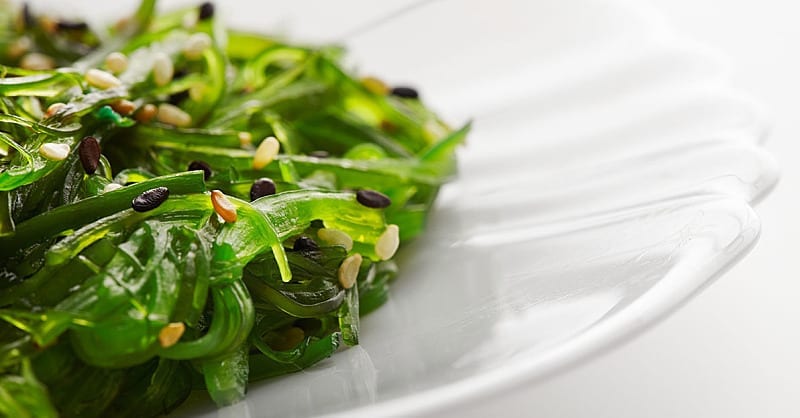The ocean is home to all manner of sea life, fish, crabs, whales…but did you know that it is also home to some of the best nutrients for your body?
Today we’re talking sea vegetables. Here is a breakdown of what sea vegetables are, popular ones you should try, and why you should be eating these nutritious foods.
Chlorella: This unique single-celled freshwater algae has survived on the earth for more than two billion years. The secret to its longevity is chlorella’s fibrous outer wall. Hidden within that wall – which is indigestible to humans – are powerful detoxification properties. Fortunately, scientists have found that breaking the wall releases chlorella’s natural ability to bind toxins and heavy metals through a process known as chelation. Chlorella also boasts a wealth of antioxidants and vitamins including vitamins B1, B2, B12, folic acid, C, and K. Plus it’s a potent source of minerals, essential fatty acids, protein, and fiber.
Preliminary research has found that supplementing with chlorella can increase the amount of cadmium and other heavy metals that are excreted by the body. A randomized clinical trial found that this superfood has remarkable liver-protective and detoxifying benefits for people with non-alcoholic fatty liver disease. The study participants took either the popular diabetes drug metformin and vitamin E, or metformin and vitamin E combined with 1,200 mg of chlorella. Those who took the medications with the addition of algae experienced improvements in their diabetes markets, triglycerides, and abnormal liver enzymes.
Spirulina: This blue-green microalgae is actually a type of bacteria called cyanobacterium. High in antioxidants, especially phycocyanin, spirulina has been shown to inhibit the production of inflammatory-signaling molecules. Spirulina is also rich in high-quality protein, B vitamins, iron, copper, magnesium, potassium, and manganese. Not only does this make spirulina an alkaline food, it’s rich nutrient profile also gives this algae numerous health benefits. Research shows that spirulina supports healthy lipid levels, helps maintain blood sugar balance, benefits those with seasonal allergies, and improves muscle strength. A study at the University of South Florida Center of Excellence for Aging & Brain Repair has shown that spirulina can also help shield the brain from the oxidative damage that accumulates as one ages and may help reverse declines in learning and memory. Specifically, spirulina improves neuronal function, lowers inflammation in the brain, and reduces levels of chemicals linked to oxidative damage.
Spirulina also helps pump up the immune system. Researchers at the University of California, Davis found that adding spirulina to cultured immune system cells significantly increases the production of infection-fighting cells called cytokines. Other research shows that this green food balances the immune response.
Kelp: If you’re a fan of sushi, you’re probably familiar with kelp and its culinary uses. But it turns out that this common seaweed is particularly rich in B vitamins, which play a critical role in cellular metabolism. Because it absorbs nutrients from its surrounding environment, kelp contains more than 15 amino acids and is also a great source of calcium, magnesium, copper, boron, zinc, and manganese. As a result, this mineral-rich seaweed helps maintain pH balance and bone density. Perhaps kelp’s biggest claim to fame is its high iodine content, which supports thyroid function. This is critical for an efficient energy-producing metabolism.
Don’t like the taste of sea veggies? Not a problem. There are supplements out there that contain most of the nutritious ingredients mentioned above. Looking to get a little more chlorella in your life? Try Kyo-Green Greens Blend and Kyo-Green Sprouts Blend, which both contain this powerhouse ingredient and provide nutritional benefits for the whole body. For spirulina, we recommend Kyo-Green Harvest Blend, which not only contains spirulina, but also organic fruits, veggies, naturally sourced grasses, and ancient grains, designed to support and protect the immune system.
References
This article is for informational purposes only. This article is not, nor is it intended to be, a substitute for professional medical advice, diagnosis, or treatment and should never be relied upon for specific medical advice.

Share this Post